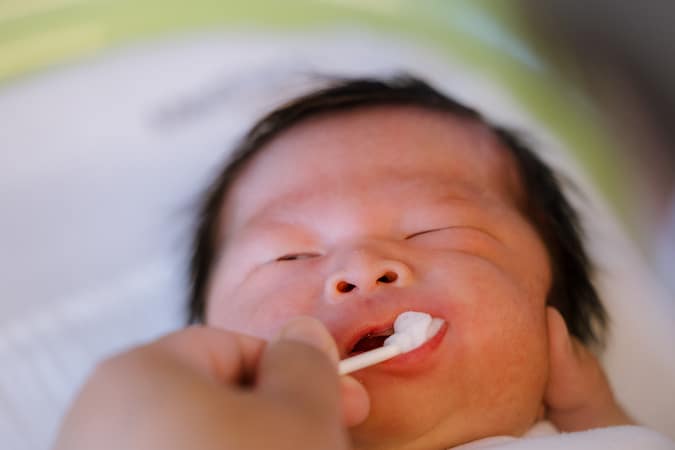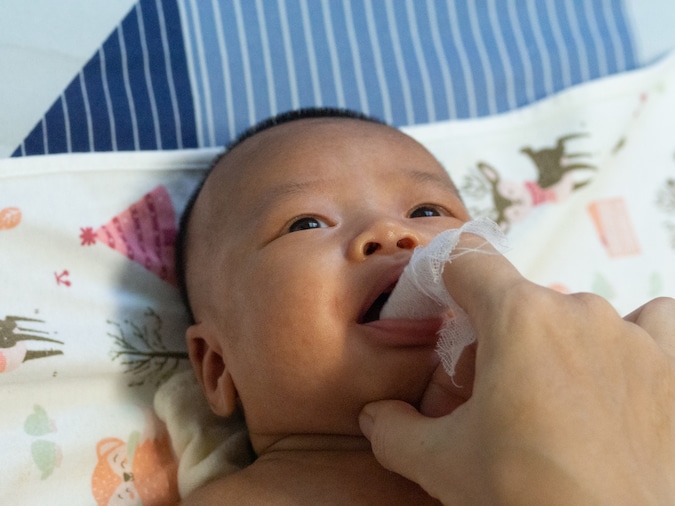
Teething Pain Relief for Babies: What Parents Need

Teething can be a painful process for babies, but there are safe and effective methods to soothe discomfort. Learn what works best, what to avoid, and how to care for your baby’s emerging teeth to keep them happy and healthy.
Teething is a natural milestone that every baby goes through, typically starting around 6 months old. It can cause discomfort, irritability, and sleep disturbances for little ones. This guide will help you understand teething, identify symptoms, and use safe, effective pain relief techniques to ease your baby’s distress. For more helpful parenting resources and family health tips, explore SelfGood .
Key Takeaways:
- Understand common teething symptoms and when they occur.
- Explore safe, pediatrician-approved teething pain relief methods.
- Learn about dental care for emerging baby teeth.
- Avoid using numbing gels or unsafe remedies for teething pain.
What Causes Teething Pain?

Teething pain is a result of baby teeth pushing through the gums, causing inflammation and tenderness. As teeth break the gum surface, the tissue becomes swollen and irritated.
The biological process of teething involves complex changes in bone and gum structure. This natural process is often uncomfortable for babies because of the sensitivity of the gums. Increased saliva production can also irritate the skin around the mouth, contributing to discomfort.
Top Signs Your Baby Is Teething
Recognizing teething symptoms can help you know when to start pain relief measures:
- Irritability and Crying:Teething babies are often fussier and more prone to crying.
- Increased Drooling:Excessive drooling can cause rashes on the chin, neck, and chest.
- Gum Swelling and Redness:Gums may look puffy and red, signaling that a tooth is about to break through.
- Chewing on Objects:Babies may chew on their hands or toys to relieve gum pressure.
- Changes in Eating or Sleeping Patterns:Teething pain can disrupt sleep and make babies more fussy with feeding.
Effective Teething Pain Relief Methods
Cold Compresses and Teething Rings
Cold compresses help numb teething pain and reduce inflammation naturally.
- How Cold Soothes Pain:The numbing effect of cold temperatures offers temporary relief for sore gums.
- Safe Use of Teething Toys:Use refrigerated, not frozen, teething toys. A frozen teether can be too hard and damage sensitive gum tissue. Refrigerate a damp washcloth or teething ring for your baby to chew on.
Gentle Gum Massage
A gentle gum massage can provide instant relief from pain.
- Safe Technique:Wash your hands and use a clean finger to gently rub your baby’s gums. The gentle pressure can soothe irritation.
- Alternative Options:A damp washcloth can also be used for massaging and provides added comfort.
Teething Biscuits and Baby-Safe Foods
Some foods can help relieve teething pain while keeping your baby nourished.
- Introduction to Teething Biscuits:Once your baby is old enough for solids, you can offer teething biscuits. Ensure they are designed for babies and easy to dissolve to avoid choking hazards.
- Food Options for Relief:Chilled fruits like bananas and cucumbers are soothing. Always supervise your baby to ensure they don’t choke.
What to Avoid When Relieving Teething Pain
Safety is paramount when choosing pain relief methods for teething babies.
- Avoid Numbing Gels:Over-the-counter numbing gels with benzocaine can be dangerous and are not recommended by pediatricians. These gels can cause severe side effects like methemoglobinemia, a condition that reduces oxygen levels in the blood1.
- Steer Clear of Unsafe Remedies:Home remedies like using alcohol or honey on gums should be avoided. Always consult your pediatrician for safe, effective solutions.
When to See a Pediatrician for Teething Pain
While teething is usually manageable, there are times when professional advice is needed.
- Signs That Require Medical Attention:High fever, severe diarrhea, or inconsolable crying are red flags. Consult your pediatrician if these symptoms occur, as they may not be related to teething.
- Fever and Diarrhea Myths:A mild temperature increase is normal, but a high fever or persistent diarrhea likely indicates another issue.
Caring for Baby Teeth as They Emerge

The Importance of Baby Tooth Care
Baby teeth play a crucial role in speech development, chewing, and guiding permanent teeth. Proper care ensures a strong foundation for lifelong oral health.
Tips for Cleaning Baby’s Teeth and Gums
Start good oral hygiene habits early to keep your baby’s mouth healthy.
- Using a Soft Cloth or Baby Toothbrush:Before teeth appear, use a soft, damp cloth to clean the gums. Once the teeth come in, switch to a small, soft-bristled baby toothbrush.
- Fluoride Toothpaste Guidelines:Use a rice-grain-sized amount of fluoride toothpaste until age 3. After that, a pea-sized amount is appropriate2.
Natural Teething Pain Remedies
Some parents prefer using natural remedies to ease teething discomfort.
- Chamomile and Herbal Teething Remedies:Chamomile tea, when cooled and diluted, may help soothe gums. However, always consult with your pediatrician before using herbal remedies3.
- Amber Teething Necklaces:Despite claims that amber necklaces reduce teething pain, there is no scientific evidence to support their effectiveness. They can also pose choking and strangulation risks.
Debunking Teething Myths
Misinformation about teething is common, so let’s set the record straight.
- Myth: Teething Causes High Fever:While a slight temperature increase is normal, teething does not cause high fever. A high fever may indicate another issue.
- Myth: Teething Leads to Severe Illness:Teething may cause minor symptoms like fussiness, but severe symptoms require medical evaluation.
- Fact vs. Fiction:Understanding what teething can and cannot cause will help you keep your baby safe and healthy.
Final Thoughts
Teething is a tough time for both babies and parents, but with the right approach, you can ease the discomfort. Using safe and effective methods, you can help your baby through this milestone while ensuring their oral health. Always consult a pediatrician if symptoms seem severe or out of the ordinary. Remember, this phase will pass, and your baby will soon have a beautiful set of teeth.
Frequently Asked Questions
When Do Babies Start Teething?
Most babies start teething around 6 months, but it can vary. Some may start as early as 3 months or as late as 12 months.
How Long Does Teething Pain Last?
Teething pain usually lasts a few days before and after a tooth breaks through the gums. However, each baby is different, and some may experience discomfort for longer periods.
Are Teething Toys Safe for My Baby?
Yes, teething toys are generally safe when used under supervision and kept clean. Avoid frozen teethers or ones that could break apart and become a choking hazard.
Sources:
- American Academy of Pediatrics. (n.d.). Guidelines on Teething Relief. https://aap.org
- Mayo Clinic. (n.d.). Teething Pain Management Tips. https://mayoclinic.org
- Harvard Health. (n.d.). Infant Oral Care Guide. https://harvard.edu




